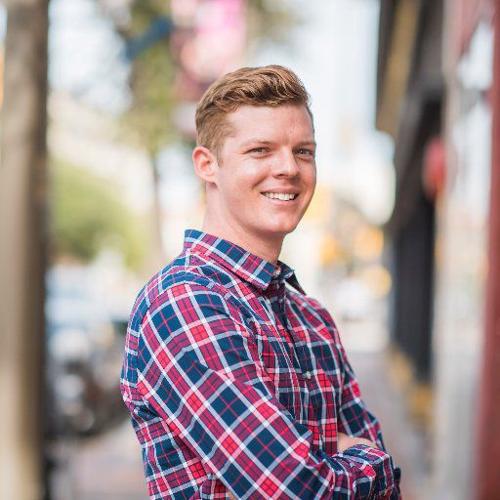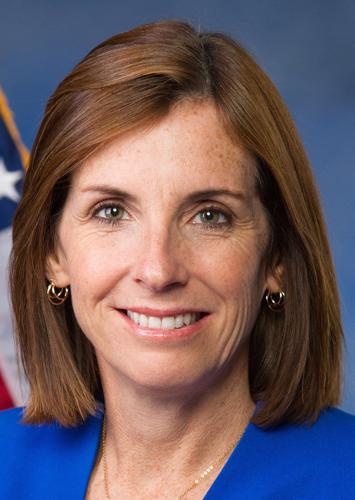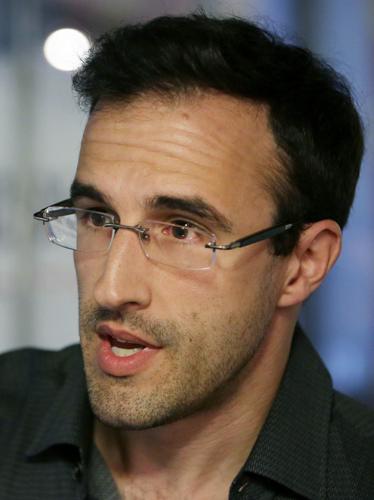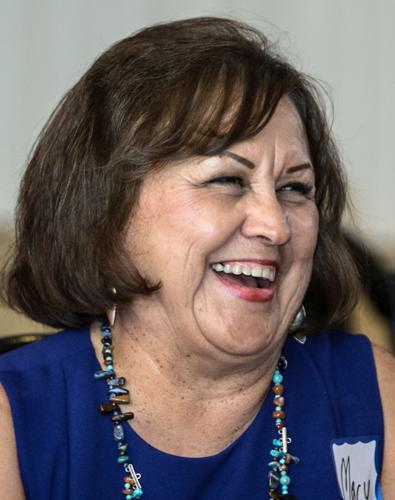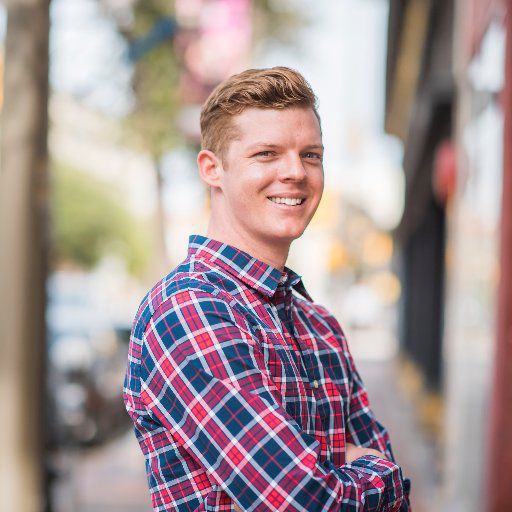The most interesting number in Martha McSally’s latest finance report isn’t the $1 million she raised for her re-election campaign.
It is the $663,000 that her campaign team doled out roughly 18 months before voters go to the polls in Congressional District 2.
The McSally for Congress campaign went through cash much faster than in previous election cycles, spending roughly $2 for every $3 the campaign raised.
In a 579-page filing with the Federal Election Commission, the two-term Republican reported paying off $186,200 in campaign debt.
The Arizona Daily Star has identified that the McSally for Congress campaign spent at least $429,320 between April 1 and June 30 to pay for the design, printing, postage and mailing of fundraising letters.
By the end of June, the campaign had only added $356,373 to its war chest.
However, with a six-figure amount leftover from the first quarter of the year, the McSally campaign has $987,000 in its campaign coffers with no debt.
Outside political observers say CD2 will be very competitive in the 2018 midterm elections, despite the fact that McSally won the district spanning most of Cochise County and part of Pima County with nearly 57 percent of the vote in 2016.
The Cook Political Report, a well-respected, nonpartisan newsletter that analyzes elections and campaigns, lists CD2 as “leans Republican,” giving McSally a slight advantage.
McSally is facing mounting criticism from both well-funded political action committees as well as a grass-roots group that has staged dozens of demonstrations outside her midtown offices.
For example, a group calling itself Save My Care bought a number of 30-second ads to air in the Tucson media market in April, criticizing the Republican lawmaker for her stance on health-care reform.
Locally, a grass-roots group called Represent Me AZ has formed a political action committee after growing frustrated with McSally.
The group plans on using funds it raises to pay for ads, billboards and to host candidate forums.
Adding to the heat in the Southern Arizona political climate are eight candidates, so far, vying for the Democratic nomination.
With some candidates either newly announced or still in the exploratory phase, only three filed with the FEC for the last quarter.
Emergency room physician Matt Heinz — who ran against McSally last year and lost — has the largest campaign war chest among the Democratic candidates.
He raised $201,086 in the last reporting cycle and has $181,145 in cash reserves, according to recent filings with the FEC.
Heinz has spent a fraction of what McSally spent — $19,941 on election-related expenses.
One of his biggest expenses was a phone poll, which cost $4,500.
The poll, performed by Public Policy Polling in June, suggested that local Democrats gave an edge to Heinz over former U.S. Rep. Ann Kirkpatrick in a hypothetical race.
At the time of the poll, Kirkpatrick had not formally announced she was entering the race.
Kirkpatrick, who has moved to Tucson and filed to run in the Democratic primary on Friday, did not have to file a report for the last quarter.
Retired assistant secretary of the Army Mary Matiella raised $31,214 in the three-month period but only spent $615.
Businessman Billy Kovacs received $12,733 in the same period but spent $14,678. He had $5,492 in cash reserves at the end of June.
Other CD2 Democratic candidates, former state Rep. Bruce Wheeler, small-business owner Charlie Verdin, pilot Jeff Latas and consultant William Foster, did not have to file paperwork with the FEC.


